Board Members
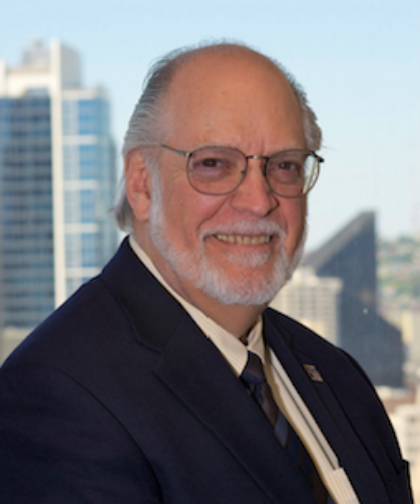
Kim Herman
Board President
Kim Herman retired as the executive director of the Washington State Housing Finance Commission at the end of December 2019, after serving for 35 years in that position.
Kim is a native of Washington State and has served as a member of the Commission, as Washington project director of the U.S. Department of Housing and Urban Development’s Rural Assistance Initiative Program, as executive director of the Housing Authority of the City of Yakima and as manager of Single Family Housing for the Portland Development Commission.
From 1988 through 2010, he served on the Board of Directors of the National Council of State Housing Agencies and served as council president from 2006 to 2008. He also served on the board of the Housing Partnership, the Bill & Melinda Gates Foundation Sound Families Steering Committee and the Greater Seattle YMCA Public Policy Committee.
Kim was a founding member of the Washington Low Income Housing Congress/ Washington Low Income Housing Alliance and served on that board from 1988 to 2013. He currently serves on the Alliance’s Action Fund Board.
Kim also continues to serve on the boards of the National Rural Housing Coalition and Friends of the Dominican Republic. In 2012, he served on the Attorney General’s Blue Ribbon Consumer Foreclosure Remedies Fund Committee to determine how to use the proceeds of the national bank settlement in Washington.
Kim earned his bachelor’s degree at Washington State University in 1967.

Gabe Spencer
Secretary
Gabe Spencer Is an elected official for tax assessment in Skamania County, since January of 2007. Skamania County is over one million acres that spans from the Columbia River to the northern flanks of Mt. St. Helens. As the Assessor, he believes in transparency and treating taxpayers with kindness and fairness. Gabe has over 1200 hours of continuing education credits in appraisal and tax policy and responsibly manages over 10,000 parcels with a total assessed value of $2.9 billion.
Early on as Assessor, he spearheaded the creation of Skamania’s first GIS department now considered one of the top rural County programs in the State. Gabe’s current or past professional associations include the Washington State Housing Finance Commission; the Columbia Gorge Housing Authority; the Washington State Assessor’s Association; the National Association of County Officials, CEWD board; the Columbia Cascade Housing Corporation; The Skamania County homeless housing board; the IAAO, International Assessment Administration Organization; and the Washington Association of County officials.
Gabe graduated with a degree from Northern Arizona University and has an extended major in Social Anthropology.

Craig Muska
Treasurer
Craig Muska founded and served as president of Canopy, a new model for strengthening local communities and promoting economic development by developing a pipeline of scalable, regionally-focused investment opportunities. Canopy was created to develop a place where community leaders, regional stakeholders and investors all have a seat at the table and to connect its members to new opportunities that would be otherwise possible. As president, Craig played a key role in the development and launch of Canopy and collaborated with a diverse group of community-focused leaders, public sector stakeholders, universities, and place-based foundations to craft Canopy into an innovative model for regional investment capital formation and rural economic development.
Craig brings more than 20 years of investment expertise and is a nationally recognized expert in the field of impact investing. Prior to founding Canopy, he served as director of investments for Threshold Group’s Foundation Services where he launched and developed the firm’s impact investing strategy across their client base. He has worked with leading private foundations, institutional investors and asset managers to develop impact aligned investment strategies and collaborations. Craig was also managing director at IW Financial, an investment research and consulting firm that integrates environmental, social and governance data into institutional investment frameworks. He brings a diverse background from his strategy and investment roles at Envestnet Asset Management, Credit Suite HOLT and Nuveen Investments.
Craig earned a bachelor’s degree in finance from Northern Illinois University and a master’s in public administration from the University of Illinois, Chicago.
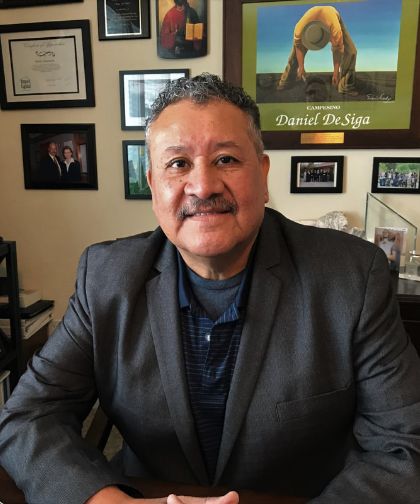
Mario Villanueva
Mario Villanueva currently works part-time for Thurston County, Wash., Superior Court. He recently served as the executive director for the Washington State Catholic Conference. In this role, he directed efforts around the state on matters of legislation and public policy for the Catholic bishops of the state. The WSCC also sponsored the Cornerstone Catholic Conference and continues to promote the PREPARES family support ministry in Washington. He also serves as CEO for Villanueva Enterprises, Ltd., and, in this role, served as acting executive director for Partners for Rural Washington.
Mario served as state director of U.S. Department of Agriculture Rural Development under the Obama Administration from 2009 to 2017. There, he oversaw the deployment of $6.4 billion in loans, grants, and technical assistance in the rural regions of the state in the areas of housing, business, and community infrastructure. He oversaw projects based on administration priorities, including renewable energy, green technologies, local food, regional community and economic development, broadband access, and service to Native American tribes.
Prior to his time with USDA, Mario worked for 33 years in private business, non-profit and faith-based housing development, ownership and management, social services and rural advocacy. Over the years, he has received several awards and recognition from foundations, state and federal governments, and rural community and economic development stakeholders for his rural work.

Stephen Dunk
Stephen Dunk works for the Washington State Department of Commerce as a Community Engagement Specialist. As a Community Engagement Specialist he is charged with creating a presence and on-going relationships with rural, disadvantaged communities throughout the state. He has worked for the Department of Commerce since 2007. Prior to community outreach, he worked for the Public Works Board as a regional services coordinator helping local governments build and retain local capacity, coordinating with state, federal and local funders to assist in financing critical infrastructure needs.
From 2001 to 2007, Stephen worked for the Skokomish Indian Tribe as manager for Housing and Infrastructure Development.
He holds a master’s degree in public administration from the University of Colorado. He was a Peace Corps volunteer in Paraguay, South America, and has a passion for travel, culture, rural communities and local government.
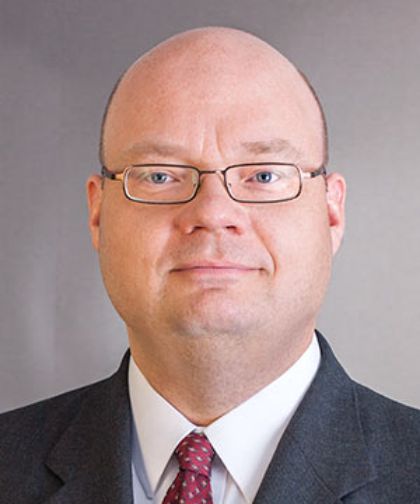
Jon DeVaney
Jon DeVaney has served as president of the Washington State Tree Fruit Association since September 2014 when the association was established through the merger of four existing tree fruit industry organizations. In this capacity, he oversees the association’s industry education, data collection and reporting and state and local government relations activities on behalf of the growers, packers and shippers of the state’s apple, pear and cherry growers.
Prior to the merger, he was the executive director of the Yakima Valley Growers Shippers Association from November 2009. He has an extensive background in agricultural policy and politics, having previously served as a long-time staff member of U.S. Rep. Doc Hastings, as Washington State Director of USDA Rural Development and on the staff of the Northwest Horticultural Council.
Jon also serves on the boards of the Office of Rural and Farmworker Housing, the National Council of Agricultural Employers and the Association of Washington Business.
He received his bachelor’s degree from the University of Washington and a master’s degree from Georgetown University. He resides in Yakima with his wife and two sons.

Micki Harnois
Micki Harnois has used her work experience and skills to assist small communities with economic development and sustainability. She began her career in 1999 as an associate planner in Chelan County where she processed land use actions, variances and rezones. In 2000, she became an associate planner in Spokane County where she dealt with sign permits, review of commercial building projects and served as the short plat administrator. In 2003, she became the planner for the City of Spokane Valley, processing all types of land use actions, doing commercial building reviews, comprehensive plan updates and municipal code updates and customer service. She retired from that position in 2019. In 2020, she opened her own business – Mighty Small Planning Services – dealing with land use and policy administration. In 2021, she became the clerk/treasurer for the town of Malden, Wash.
In 2002, Micki was elected to the Town Council of Rockford, Wash., a position she still holds. Her professional associations include the Association of Washington Cities Board and the AWCS Small Cities Committee; the Spokane Regional Transportation Council; the Rockford Tree City USA organization; the Spokane County Steering Committee of Elected Officials GMA; and the North Palouse Chamber of Commerce. She has received awards from the AWC and the Infrastructure Assistance Coordinating Council and is a certified Tourism Ambassador for the Spokane Region.
Micki has a bachelor’s degree in social science from Washington State University ad completed course work for a master’s degree in Urban and Regional Planning from Eastern Washington University.
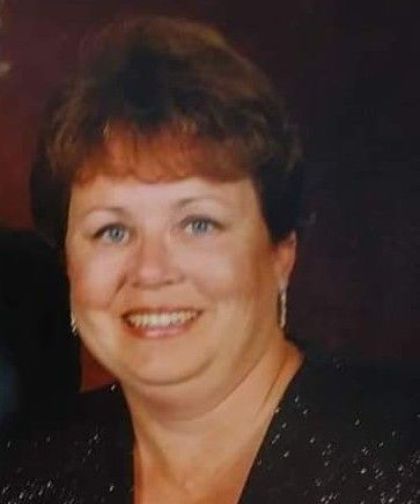
Blanche Rhea
Currently the mayor of Farmington, Wash., Blanche Rhea works and serves her small Palouse region town in all ways. She began her tenure with town government in Farmington as a council member in May 2020, was appointed mayor in 2023 and was elected mayor in November 2023. With a population of approximately 132 people, Farmington has been able to upgrade many needed items and enter the 21st Century. Blanche continues to not only advocate for her town, but for all other small towns by continuing to attend meetings and workshops that are offered in the region to support small rural communities.
Blanche grew up in the small town of Lynden in western Washington, and even as a young woman, worked in support of small towns. She graduated with a Certificate in Medical Assistance from the MTI Business College in the early 1980s and worked in the medical field for both physicians and insurance companies in management roles for 18 years. She worked with the underprivileged by accompanying physicians on home visits to give medical care and assistance. While working for insurance companies, she created a guidebook on how to specifically coordinate claims with Medicare that was used for a number of years by the company. She also conducted training classes onsite and supervised.
In 1999, Blanche made a career changed and joined Marriott International as a director of Human Resources. While there, she obtained her teaching certificate from the University of California. Working in conjunction with the State of California and San Joaquin Valley, she helped create the Welfare to Work Program, developed a curriculum and taught individuals entering the workforce how to begin working, starting from setting their alarms to the expectations of an employer. She also taught entry level classes for all new hires with Marriott.
After retirement, she launched into advocating and working for Farmington. “Small towns are a passion and helping the towns and communities in getting the services they need is important to me,” she says. “Small towns should not ever be forgotten or put aside. My goal is to see that every town be given the opportunities to be the best they can be!”
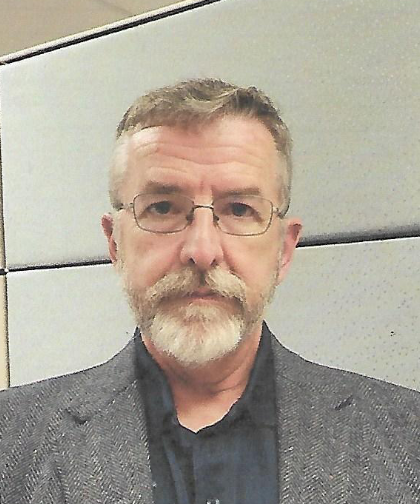
Michael Gaffney
Michael J. Gaffney, J.D., is the associate director of Extension at Washington State University. Mike has served in a number of overlapping leadership positions for WSU Extension since November, 2015. These include assistant director, acting director, and for seven years as director of the Extension Community and Economic Development Program Unit (CED). Prior to those appointments, Mike served at WSU as the director of the Division of Governmental Studies and Services, and simultaneously as the director of Emergency Management.
With a background in political science, public safety, law and public policy, Mike has been associated with WSU Extension for 24 years and has long participated in community engagement and projects that provide applied research, technical assistance and training services for, governmental agencies, nonprofits and communities throughout the Northwest. These activities have included projects related to resilience, community-oriented policing, collaborative natural resource management, ethics in public service, emergency management and disaster response, social capital/ community capitals, and broadband equity and expansion.
Mike has served in a number of regional and national organizations, including the Extension Disaster Education Network; the Western Extension Directors Association; the APLU Commission on Economic and Community Engagement; the Western Rural Development Center; and the Western Program and Organizational Leaders Committee.
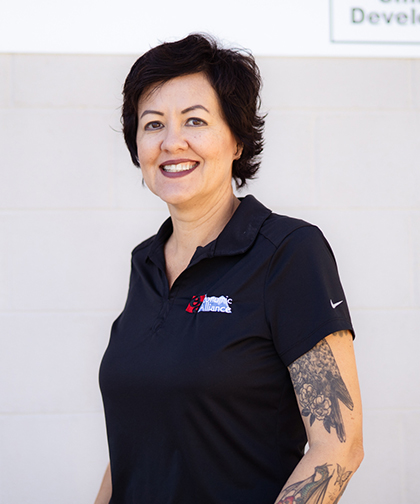
Roni Holder-Diefenbach
Roni Holder-Diefenbach is the executive director of the Economic Alliance, the designated Economic Development Council/ADO for Okanogan County since 2007. Roni grew up in Omak and left to attend college in Spokane shortly after graduating from high school. She returned to Okanogan County in 1998 as she felt that coming home would be the best place to work and to raise her family. Roni went to work immediately for the Confederated Tribes of the Colville Indian Reservation as the lead job development specialist when they first obtained the Workfirst contracts from the State of Washington. She then went to work as the branch manager of Career Path Services, a workforce development organization in Okanogan County for 7 years.
Roni is a Colville Tribal Member, and together with her husband Kevin, has two adult children and one grandson, Riot Lee! They bought their first business in April 2002 and now own several small businesses in Okanogan County. She currently sits on the executive committees of the NCW Workforce Development Council and NCW Economic Development District Board. She also serves on the Washington Economic Development Association Board and was appointed to the Washington State Community Economic Revitalization Board, representing small businesses east of the Cascades. Roni also facilitates the Okanogan County and Colville Confederated Tribes Broadband Action Team and has done so since 2019.

Eric Johnson
Eric Johnson has served communities in the State of Washington for over 40 years as both an appointed and elected official. In 2024, Eric stepped down after 17 years as Executive Director for the Washington State Association of Counties (WSAC). Prior to joining the WSAC staff, he served as a Lewis County Commissioner, being first elected in 2000 and re-elected in 2004. As a county commissioner, he primarily focused on transportation and public works, land use and natural resources, and improving health and human services in distressed rural communities. Eric is currently a partner at Columbia Policy Advisors.
Eric started his professional career in parks, recreation and natural resource management, serving in administrative positions with Lewis County and the cities of Chehalis and Bellingham. He also served for nine years as assistant director for the Washington State Recreation and Conservation Office.
Eric is passionate about effective and efficient delivery of public services, improving public policy and transparent processes, strategic organizational improvement and ensuring prioritization and accountability for public expenditures.
Throughout his career, Eric has been active in serving on local, state and national boards and committees.
Eric holds a Bachelor of Arts from Western Washington University and a Certificate in Executive Management from the University of Washington’s Evans School of Public Policy and Governance.
